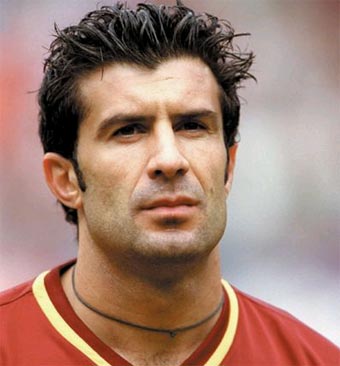London, UK, Feb 19, 2015: Global football icon and FIFA Presidential Candidate, Luís Figo, has unveiled his Manifesto for restoring credibility and rebuilding trust in football’s world governing body.
With a clear vision for the future of the game, Figo’s Manifesto has been developed after constructive discussions with many in the football family and sets out to install a new style of leadership at FIFA that places football at the heart of everything the organisation does.
On his candidacy, Figo said:
“I passionately believe that there is far too much at stake to sit on the side lines and refuse to act – that is not the man I am. I am ready to help bring about real change and usher in a far more positive era for FIFA and every one of its Member Associations.
“I was very lucky and fortunate to have the chance to play and get training from a young age. But this opportunity does not exist for most children in the world, so addressing this crucial issue would be a key focus under my Presidency. It is why I propose creating school football projects in every Member Association country. And it is why I want to see at least 50% of FIFA’s Solidarity funds spent on grassroots football pitches, balls and kits.”
One of the core recommendations in the For Football Manifesto is that 50% of FIFA’s revenues – $2.5 billion – should be distributed directly to the National Associations over 4 years to help fund grassroots Football development across the world. Figo also proposes that $1 billion of FIFA’s $1.5 billion reserves should be redistributed back to Member Associations.
Speaking about the recommended changes to the Solidarity payments, Luís Figo, said:
“After many conversations with football leaders, one of the consistent themes fed back to me is the way FIFA currently distributes revenues to its Member Associations is very inefficient and ineffective – especially for developing football across all Associations. FIFA belongs to its Member Associations and it is only natural that FIFA’s revenues and reserves are distributed back to them directly. The impact of my proposals would mean between $8m-$10m being distributed to each Member Association across a 4 year period.
“If done in the right way, with a clearly defined strategy that is centrally audited and monitored, this investment will radically enhance football opportunities for boys and girls and directly benefit all of FIFA’s 209 Member Associations.”
Should he be elected as FIFA President, Figo has also made a commitment to hold an open debate on the future of the World Cup, with Figo saying:
“The World Cup is the most popular sporting event in the world with interest from fans increasing exponentially at each new edition. It is a true treasure for FIFA and its Member Associations and I propose to have an open debate at the FIFA Congress on its future.
“I believe we should consider proposals to expand the competition from its current 32 team structure, to a 40 or even 48 team World Cup. Both these options are feasible with an extra three to four days of tournament play. If this expansion were to take place, I believe that additional teams should come from non-European nations.”
“My starting point in this debate is that by increasing the number of teams participating in the World Cup, we not only make sure that we include more countries from across the world, but also enable FIFA to raise significant increased revenues that can be used to invest in the growth of the game globally.”
Another key element of the For Football Manifesto includes strengthening the Governance, Audit and Compliance Committee to ensure good governance across the entire FIFA organisation. Figo also proposes changes to the laws of the game to help football adapt and stay modern. These include:
– Support for goal line technology and a real and structured debate on the use of more technology in football
– Amending the triple punishment rule
– Testing of sin-bins for unsporting behaviour to referees
– A return of the ‘old’ definition of the off side rule – where a player is judged off side whether directly involved in the play or not. —- Forfootball


Leave a Reply
You must be logged in to post a comment.